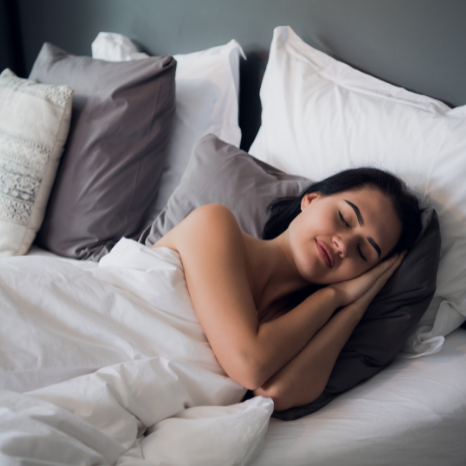Sleep hygiene refers to good sleep habits that best ensure high-quality sleep and help us restore our energy. Most people need between seven and nine hours of sleep per day, not just at night, but also including naps during the day.
There are many factors that affect sleep hygiene, sometimes this include long-term bad habits that we are not aware of. Changing sleep habits isn’t necessarily difficult. Different methods work for different people. Find what works best for you and stick to it, you will find your sleep improve over time. However, if you still experience trouble falling or staying asleep despite adhering to good sleep hygiene, consult your doctor to find out if other possible factors may be affecting your sleep quality.
Tips for Maintaining Sleep Hygiene
The State of Bedroom
Keep bedroom dark and quiet at night.
Avoid watching TV or using mobile phone when on bed.
Use the bed only for sleeping.
Try to avoid sharing bed with children or pets.
Preparing for Bed
Choose comfortable and appropriate quilt warmth, pillow and mattress.
Taking a warm bath before bed can help generate drowsiness encouraging sleep.
Keep hands and feet warm by wearing thermal underwear as needed in winter.
Cultivating Drowsiness
Never force yourself to sleep.
If you can’t fall asleep in a short time, you should get up and find something calming to do. Remember to avoid light and go back to bed when you feel sleepy.
Avoid checking your watch or clock frequently to prevent anxiety and stress, making it even more difficult to fall asleep.
Sleep Routine
Keeping a regular sleep schedule will encourage you to feel sleepy and wake up at a fixed time. Best to avoid going to bed or waking up earlier or later than your regular sleeping time.
It is not recommended to make up for a late night’s sleep by waking up late the next day.
Try to avoid working morning and evening shifts at the same time, as inconsistent bedtimes can disrupt one’s body clock.
Lifestyle
Maintain moderate and regular exercise to improve sleep. Try to avoid exercise before bed as that activates the brain.
Melatonin is critical for sleep. Exposure to the sun during the day can increase the production of melatonin, allowing it to work more effectively at night.
Consuming no more than 400mg of caffeine per day, which equals to 2 espresso coffees.
Nicotine is a stimulant that obstructs sleep. Quitting smoking will allow you to fall asleep faster and deeper.
Medication
Some medication have side effect making people drowsy or alert. Always read the instructions and follow your doctor’s advice when taking medication.
Short-term use of sleeping pills may be necessary in some situations, however, it is best not to rely on them. Long-term use of sleeping pills may cause the inability to fall asleep naturally.
Yakult and Sleep
A study published in 2016 found that consuming Lactobacillus casei Shirota strain (LcS) could relieve stress-induced symptoms such as anxiety1. Another study published in 2017 showed that daily consumption of fermented milk rich in Lactobacillus casei Shirota strain (LcS) may help to maintain sleep quality under psychological stress when consumed in 100ml bottles2.
In Australia, each bottle of Yakult contains 6.5 billion of Yakult’s exclusive Shirota strains. Learn more about Yakult: https://www.yakult.com.au
Reference
- https://pubmed.ncbi.nlm.nih.gov/26896291/
- https://pubmed.ncbi.nlm.nih.gov/28443383/
- https://www.betterhealth.vic.gov.au/health/conditionsandtreatments/sleep-hygiene
- https://www.healthnews.com.tw/news/article/51970
